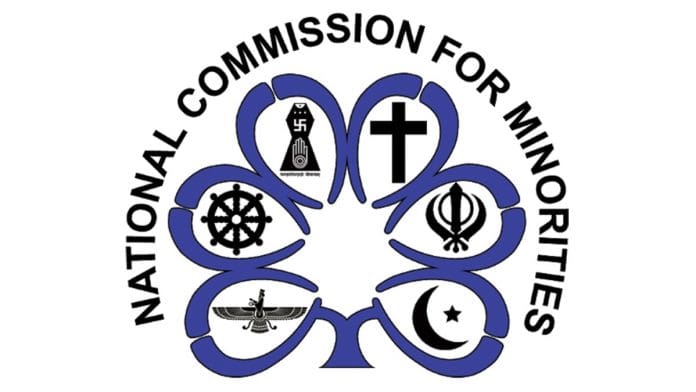New Delhi: The seven-member National Commission for Minorities has been operating with only one member since November 2020 but there is no clarity yet on when the six vacancies will be filled, even after the Delhi High Court pulled up the Centre on the issue earlier this month.
Formed in 1978, the panel’s mandate includes monitoring the functioning of the safeguards for minorities provided in the Constitution and looking into specific complaints regarding deprivation of rights of minorities, among others.
While the lone member of the commission, Atif Rasheed said the vacancies have not affected the functioning of the body, former members have raised alarm.
Union Minority Affairs Minister Mukhtar Abbas Naqvi, however, told ThePrint that the process to fill up the vacant posts is now under way.
“Most vacancies came during the Covid pandemic when the government was focussed on ensuring health and well-being of the people. As a result, appointments weren’t made but now the process has started,” he said.
“As far as the commission is concerned, its working has not been paralysed in any way. The staff is working with the vice-chairman. The chairman will also be appointed soon. It’s a long process but it has started,” Naqvi added.
On 15 February, the Delhi HC asked the central government to file a status report in response to a petition seeking filling of all vacant posts on the panel.
Also read: This is how Modi govt’s new rules will regulate digital media and OTT content
‘Vacancies haven’t affected work’
The commission, which became a statutory body in 1992, should have seven members in total — a chairperson and six members representing each of the six notified minority groups — Buddhists, Jains, Christians, Muslims, Parsis and Sikhs.
Each member is to hold office for a period of three years. All members are appointed by the central government.
The commission has been without a chairman since May 2020 when Ghayorul Hasan Rizvi’s tenure ended. Former vice chairman Manjit Singh Rai was officiating as chairman of the commission until his tenure got over in November 2020.
Since then, Atif Rasheed, who was a member earlier, has been serving as the vice-chairman — the lone member of the body at present.
Speaking to ThePrint, he said the vacancies have not affected the functioning of the commission.
“I have been the lone member running the commission since 25 November. Whether there is one member or six, the commission is continuing its work. I have reviewed six states — Kerala, Andhra Pradesh, Telangana, Tamil Nadu, Puducherry and Karnataka — by myself since November,” he said.
“We have reviewed the implementation of the PM’s 15-point programme as well as met the chief secretaries of the state and reviewed their work. The commission is also conducting regular hearings. There’s nothing in the Act that one person cannot conduct the hearings. We are continuing hearings as well as disposing cases,” he added.
Rasheed is also planning to tour states in north India in the coming months and launch an app for easy grievance redressal of the minority communities.
“We are launching an app very soon where complaints can be easily lodged. I will also be visiting Madhya Pradesh, Rajasthan and a few other states from April. Our motto is to ensure that with our work we not only work for sabka vikas but also win sabka vishwas,” said Rasheed.
Also read: ‘Details matter, will study rules’ — Facebook’s guarded response to Modi govt’s new norms
‘Commission functioning like a court without a judge’
Former commission members the ThePrint spoke to, however, said with vacancies not being filled, the panel can only do a fraction of the work it has done in the past.
“Minority Commission and other such commissions are quasi judicial authorities which can only be exercised by the chairman. It’s like a court without a judge. However qualified the staff or the vice-chairman may be, those quasi judicial cases would suffer if you don’t have enough people to hear cases,” said Wajahat Habibullah, who had served as the chairperson of the commission from 2011 to 2014.
Former members also raised questions on the amount of work that one person can do.
“If there is a full commission, they can review the government policies more effectively and visit more states and conduct more hearings. How much can one member do?” asked a former commission member who didn’t wish to be named.
Among other work, former commissions have sanctioned studies on government policies to build understanding among minority groups.
“Minorities are not just Muslims. Each group needs to have a member from their community. Because they build understanding of the community to actually ensure justice is done, whether it’s government policy or a burial ground or a land for worship or even dispute resolution. This may not be possible if you don’t have members from each community,” said Habibullah.
The commission, however, said not having members from each minority group has not affected its work. “It’s not that a Christian or Buddhist cannot hear cases of a Muslim or vice versa,” said Rasheed.
Also read: 4 months after clampdown, Modi govt lifts restrictions on international webinars






